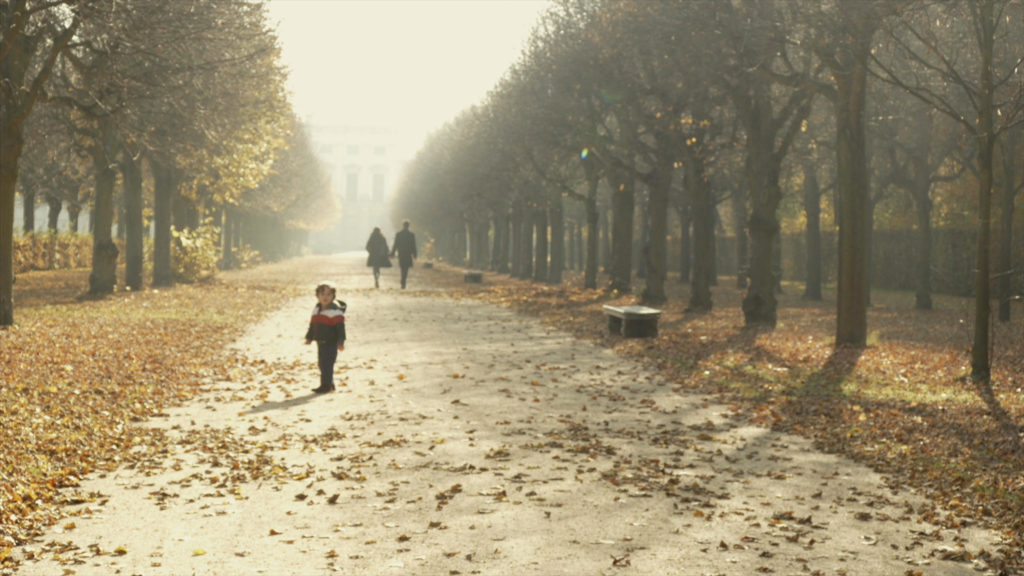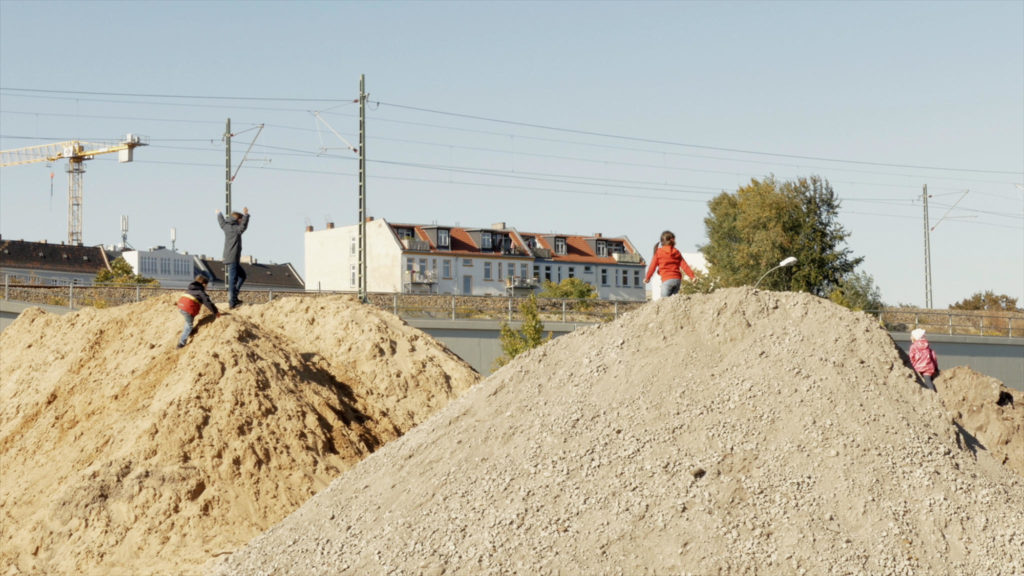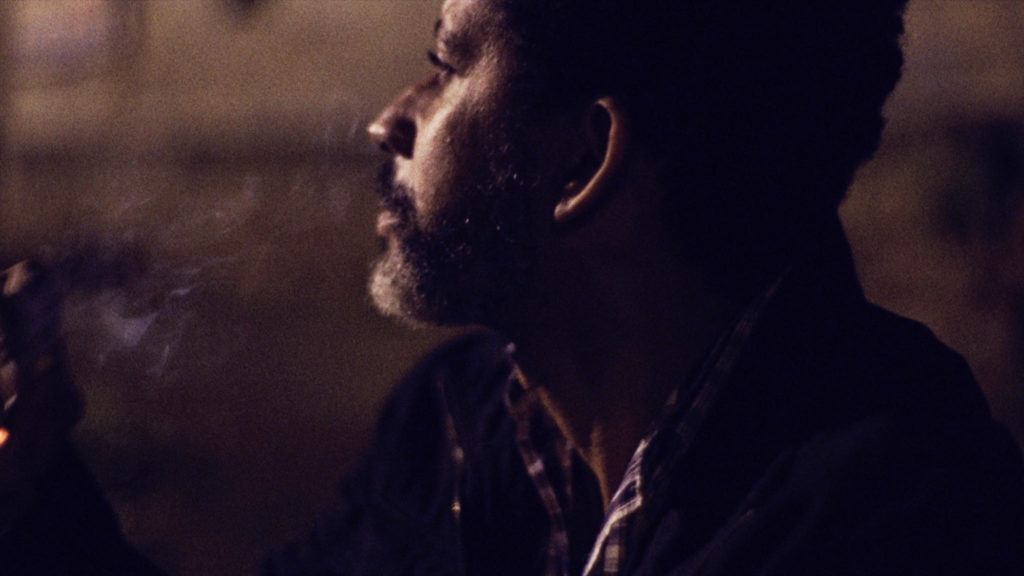Reviews include Irena’s Vow, The Beast, and Before I Change My Mind.
The Future Is Bright At IFFR
February 9, 2019
“We’ve probably reached peak voiceover.”
I’d long had my reasons for wanting to attend the Rotterdam International Film Festival. When I finally did, at this year’s edition, the festival delivered exactly what I’d hoped. Not because I saw so many wonderful films — some were terrible — but, rather, because every film I saw, wonderful, terrible or otherwise, was trying to do something, to bend narrative or formal norms, to trouble the status quo. Every film generated some discussion.
Much of what I saw — and heard — at IFFR 2019 was in the Bright Futures programme, which presents first or second features from a given director. For this first of two IFFR reports, I’m going to focus on a certain tendency in the works of these emerging filmmakers, one that perhaps speaks to some combination of practical, aesthetic and ideological concerns.

The fusion of overarching disembodied narration, audiovisual collage and travelogue has countless precedents — Sans soleil or Picture of Light spring immediately to mind — but its deployment, in documentary, essay and fiction films, has burgeoned in recent years, to the degree where we’ve probably reached peak voiceover. Karin Cuyul’s Historia de mi nombre, for example, is a memoir in which Cuyul appears onscreen only as a child in archival materials, while her voice is fundamental to the film’s architecture and meaning.
Cuyul is part of an ongoing wave of Chilean filmmakers re-examining the Pinochet era, its violence and repression, the profound traumas it’s caused, and what the resounding silence so many Chileans have adhered to in its wake might say about the national character. Cuyul was named after Karin Eitel, a young woman who, in 1987 — one year before the plebiscite that would end the Pinochet regime — was arrested, interrogated and tortured on live television. Engaging with her now-separated parents and her enigmatic namesake, Historia de mi nombre, much of which is shot from the window of a moving car — a vantage point which, the director explains, always felt safe to her — tracks Cuyul’s journey to uncover, as the title promises, the story of her name. But coming after a number of other films exploring like material — a notable example being Patricio Guzmán’s Nostalgia for the Light — Cuyul’s insular film can’t be said to offer anything fresh.
What’s more, Cuyul doesn’t seem nearly curious enough about either her parents’ complicated political positions — a third-act revelation goes perplexingly unexamined — or about Eitel’s character and biography. Meanwhile, Cuyul’s voiceover narration is plagued with a numbing uniformity, the same subdued cadences delivering chapter after unemphatic chapter of recollections. It gets one to thinking whether more nonfiction filmmakers should be regarding voiceover narration as a performance like any other, something to be shaped and honed.

This question of how to create dynamics in a film whose narration is delivered off-screen is addressed with a novel tactic in Miko Revereza’s No Data Plan, which also chronicles an intimate personal journey, that of the director’s recent train ride from Los Angeles to New York. Like Historia, the film uses things seen through the windows of a moving vehicle as a way to meditate on states of turmoil both past and present: Revereza reflects on his family’s decision to leave their native Philippines while collecting scenes meant to emblematize the current surge of hostility toward migrants and minorities in the United States.
Unlike Cuyul, Revereza doesn’t suffuse his film with voiceover; instead, much of his own commentary appears exclusively as subtitles corresponding to no audible voice, a somewhat more radical tactic that, alas, yields middling results, as though Revezera’s voice is still present but has receded completely into the film’s array of travelogue imagery — which includes strangers milling on a smoke break, close-ups of armrests and columns, and obligatory, occasionally beautiful, Hans Richter-like shots of landscapes seen through scratched or dirt-streaked windows — leaving only these superimposed textual traces that rarely demand our attention.

Clarissa Campolina and Luiz Pretti’s Enquanto estamos aqui, or While We Are Here, combines a chorus of voices on a soundtrack consisting of correspondence, narration, poetry, diegetic sound and excellent music playing over a images of public and private spaces in cities teeming with people, activity and visual information. The film, a fiction (I think) constructed with documentary visuals, tells the story of two lovers, one from Lebanon, the other from Brazil, who meet in New York. Both struggle to forge new lives in this city that seems populated almost exclusively by people from elsewhere. Enquanto estamos aqui is not exactly a work of high suspense, but I’m reluctant to reveal too much about where it takes us, except to say that Campolina and Pretti evoke a stirring sense of what it means to move through a world in which the concept of home has shifted from the geographic to the spiritual. Ambitious in its production and modest in its tenor, the film marshals its resources to accentuate a feeling of tenacity and tenderness, using its disembodied voiceover narration as a means of expressing displacement and wonder.
One obvious model for Enquanto estamos aqui is Chantal Akerman’s 1977 film News From Home, which also combined New York scenes with read-aloud correspondence. Which brings me to my last title. I’d never seen Akerman’s 2006 film La-bàs, which screened as part of IFFR’s voyeur-themed programme The Spying Thing. Consisting of only a handful of protracted shots of strangers going about their daily domestic business, most of them taken from the protective gloom of an apartment Akerman inhabited for a spell in Tel Aviv, La-bàs exudes alienation, despair — and endless curiosity about the lives of others. We never see Akerman; we only see through her, as she contemplates different modes of exile, the similarly sad fates of two aunts, Jewish identity and a depression that could only be assuaged through the discipline of work. Objectively, this film does less than any of the new films discussed above, yet it leaves you with an unshakable depth of feeling and, despite its weighty emotions, strikes you with the thrill of a master filmmaker pushing her craft forward with a methodology that a new generation of filmmakers is drawing inspiration from still.



